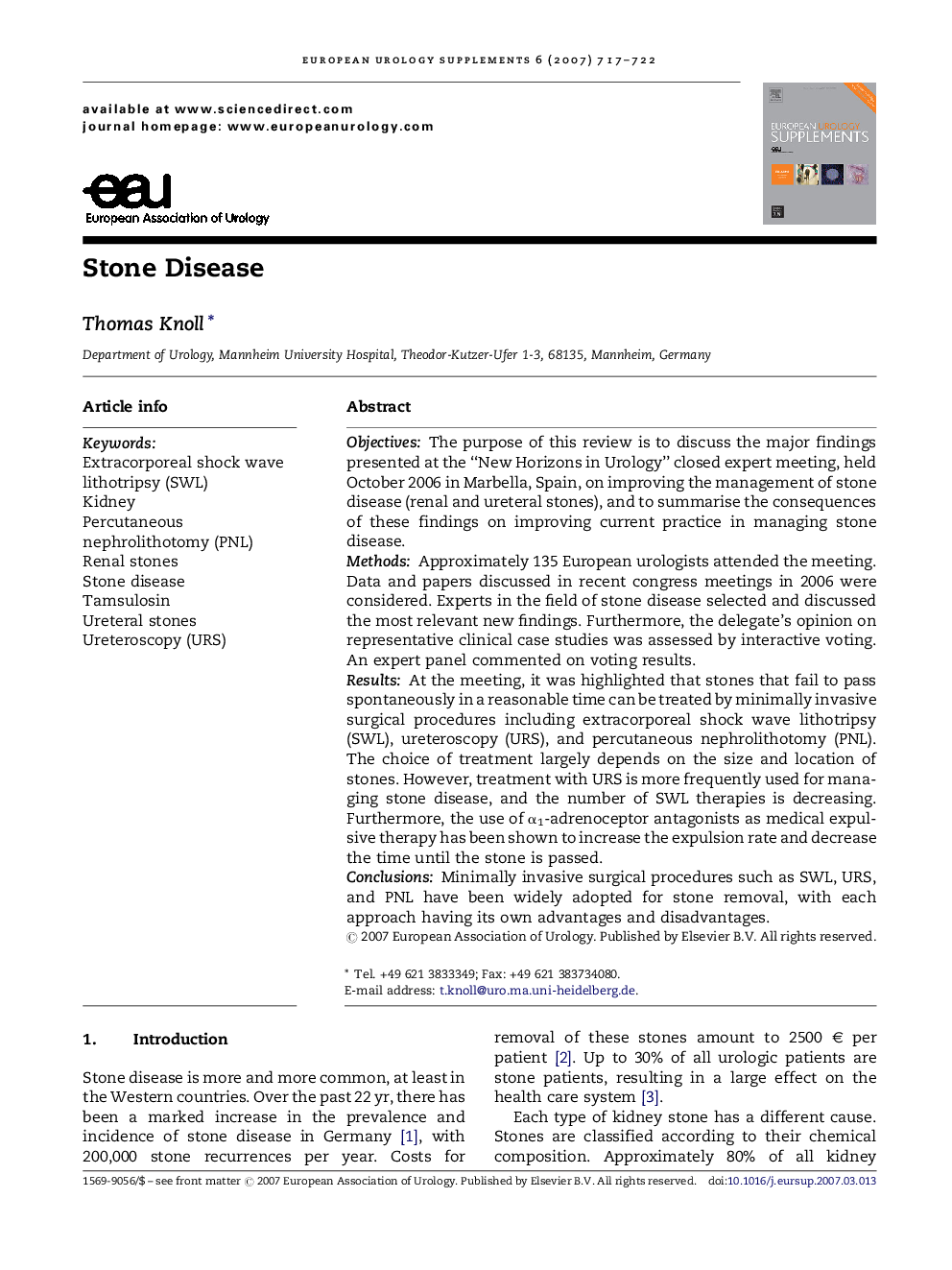| Article ID | Journal | Published Year | Pages | File Type |
|---|---|---|---|---|
| 3934737 | European Urology Supplements | 2007 | 6 Pages |
ObjectivesThe purpose of this review is to discuss the major findings presented at the “New Horizons in Urology” closed expert meeting, held October 2006 in Marbella, Spain, on improving the management of stone disease (renal and ureteral stones), and to summarise the consequences of these findings on improving current practice in managing stone disease.MethodsApproximately 135 European urologists attended the meeting. Data and papers discussed in recent congress meetings in 2006 were considered. Experts in the field of stone disease selected and discussed the most relevant new findings. Furthermore, the delegate's opinion on representative clinical case studies was assessed by interactive voting. An expert panel commented on voting results.ResultsAt the meeting, it was highlighted that stones that fail to pass spontaneously in a reasonable time can be treated by minimally invasive surgical procedures including extracorporeal shock wave lithotripsy (SWL), ureteroscopy (URS), and percutaneous nephrolithotomy (PNL). The choice of treatment largely depends on the size and location of stones. However, treatment with URS is more frequently used for managing stone disease, and the number of SWL therapies is decreasing. Furthermore, the use of α1-adrenoceptor antagonists as medical expulsive therapy has been shown to increase the expulsion rate and decrease the time until the stone is passed.ConclusionsMinimally invasive surgical procedures such as SWL, URS, and PNL have been widely adopted for stone removal, with each approach having its own advantages and disadvantages.
